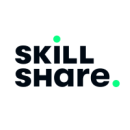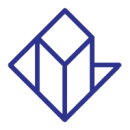
In a world where lockdowns and shelter-in-place orders restrict physical movement, digital technology is filling the void to keep households connected, supplied, entertained and informed.
But amid the increased demand for digital products and services — and the logistical challenges associated with a massive work-from-home transition — many New York tech companies have not forgotten those who are struggling right now. We asked local tech leaders to describe how they’re giving back to their communities during this uncertain season, and the responses offer a fine example of the city’s wealth of ingenuity.
Know of a team or company that’s going above and beyond right now? Share the love using #UnitedWeTech.
In what ways is your team giving back to the local community right now?
As the coronavirus crisis unfolded, Bubble introduced a free pricing plan to support anyone building an app that directly helped people affected by COVID-19. Bubble’s mission is to empower people to build their ideas quickly, efficiently and without hiring an expensive team of programmers. Since we began our COVID initiative, we have had dozens of Bubble apps launch and go live, from testing location crowdsourcing apps to small business gift card donation sites. Some of these apps took users less than three days to build. One user launched a platform on March 15 to let people buy gift cards for restaurants that gained national attention and was acquired by USA Today a week later. We pride ourselves on our ability to support people making urgently needed tools, and we are happy to support these new users every step of the way.
How have you adapted, expanded or changed your charitable giving initiatives in light of recent events?
We planned to participate in our first team volunteer event at the end of March, but the current situation has affected that. When everyone was mandated to work remotely and all of our building services were halted, we wanted to make sure their service workers were going to get paid. We deliberately reached out to our janitorial and plant maintenance companies and said, “Although you aren’t able to work, we want to make sure that we can continue to support your workers because we care about their livelihoods and their families.” This is just the right thing to do as we’re in a much better position than many businesses as a funded tech startup.
In what ways is your team giving back to the local community right now?
This week, we launched a program to provide 501(c)(3) organizations with free access to our platform for their COVID-19 relief work. The program aims to connect the thousands in the community looking for opportunities to make a difference with organizations that need the support. In the first few days alone we’ve got several organizations up and running, including a regional Meals on Wheels that is organizing meal deliveries and telephone outreach to senior citizens and No Vet Alone, which works to combat suicide risk among veterans and first responders.
We’ve also invested considerable time and provided staff support to help the other organizations on our platform transition their organizing and supporter engagement efforts online so as to not lose momentum during this critical time. We’re creating webinars and how-to guides to quickly upskill organizers on working virtually and adapting our product to better serve virtual events.
In what ways is your team giving back to the local community right now?
Even under normal conditions, supporting local businesses is a big focus for us. We’ve always made a point to partner with local grocers, dry cleaners and retailers to fulfill our customers’ requests, but now we’re taking even more care to prioritize keeping purchasing power in the community. At a time when people are outsourcing food and supplies orders to big-box online retailers, our team is supporting local stores and service providers by shopping for groceries, supplies, medication and even liquor at home, in our own neighborhoods. The Amazons and Instacarts of the world will survive this, but the bodegas and local shops won’t without our continued support.
How have you adapted, expanded or changed your charitable giving initiatives in light of recent events?
We quickly established the Alfred Local Workers Assistance Fund to benefit impacted members of the workforce who are struggling to make ends meet, whether they’ve suffered layoffs, reduced hours or closures. We’ve increased our service fee by 1.5 percent in direct support and are waiving the cost of service for all new members in favor of a $25 weekly donation to the fund instead. We’ve also invited our partners as well as our own team to contribute. Our team members are all W-2, fully insured workers, but we realize that many others in our communities are not so fortunate. We’ve always championed the power of human help, and when could our support be more important than right now?
In what ways is your team giving back to the local community right now?
Coronavirus has impacted nearly every sector of the economy, and as a hotel tech company, our own business has taken a significant hit. At the same time, we recognize that our core product, a tech-enabled boutique hotel, can be put to good use in such chaotic times. For that reason, we’ve made our rooms available at cost to anyone impacted by the virus, including students stranded due to school shutdowns and traveling professionals who are temporarily displaced. Everyone is dealing with a different set of circumstances during this crisis, and our hope is that Mint House can help people weather such an uncertain time in their lives.
How have you adapted, expanded or changed your charitable giving initiatives in light of recent events?
Mint House is a small company, but we believe this contribution will make a difference for people in need. We also know that sooner or later this crisis is going to be over. This current program should provide a framework for future initiatives to come.
In what ways is your team giving back to the local community right now?
As a leading medical research tool, it turns out we can do a lot right now, and, frankly, we have a moral obligation to do so. With that being said, Castor has joined the global fight against the coronavirus by making our research data capture system available for free to all COVID-19 research projects. As of March 23, more than 60 COVID-19 research projects are now running on Castor. We have also developed ready-to-use eCRFs — electronic case report forms — based on the World Health Organization standard CRFs to help researchers start their study or registry in less than an hour.
How have you adapted, expanded or changed your charitable giving initiatives in light of recent events?
Very recently, Castor decided to join the climate change fight. Why? Because the number one issue on the WHO’s list of threats to global health is air pollution and climate change. Castor will be planting 10 trees for each study that goes live on our platform, whether it is a paid or free study. With recent events in mind, we have also used the full force of our talented in-house product and engineering teams to develop an app that supports COVID-19 research.
In what ways is your team giving back to the local community right now?
Local police and first responders are struggling to understand the scope of the pandemic in their communities, and their ranks have been dramatically reduced by exposure to COVID-19. That’s why Mark43 is offering to donate a one-year subscription to our Pandemic Preparedness Package to any interested public safety agency in the U.S., including agencies in New York City.
How have you adapted, expanded or changed your charitable giving initiatives in light of recent events?
To build the Mark43 platform, our team has spent thousands of hours shadowing police officers to create an application that mirrors the way our users think — whether they are dispatchers, call takers or first responders out in the field — and instantly provides all necessary information in an intuitive way during the most complicated and pressure-filled situations.
Having worked closely with over 70 departments across the U.S., we knew that many would be using paper forms to collect exposure information related to the pandemic, which makes any sort of data analysis incredibly difficult. With access to Mark43’s software, departments can easily collect exposure information and compile the data to seamlessly apply for FEMA reimbursement, if needed.
In what ways is your team giving back to the local community right now?
Nonprofits are incredibly squeezed right now. They are providing more crucial services but also getting less funding. We talk a lot about the services these nonprofits offer, like free meals, shelter and emergency healthcare aid, but we don’t talk as much about how they have lost many of their funding sources due to social distancing. Galas and events are cancelled, one-on-one meetings with major donors are cancelled and attendance revenues from museums and theaters have evaporated. Since FreeWill provides digital fundraising tools for nonprofits, we realized that the best way we could contribute is to help nonprofits figure out innovative ways to get funding digitally.
How have you adapted, expanded or changed your charitable giving initiatives in light of recent events?
We’ve dedicated around 10 percent of our full-time staff to providing free resources for nonprofits, which include weekly informational webinars, roundtables where people at similar nonprofits can share ideas and support for those applying to the $2 trillion CARES Act stimulus package, which could help save their employees’ jobs.
In what ways is your team giving back to the local community right now?
Nova Credit helps newcomers to the United States access and build credit. While all Americans are navigating uncertainty in the midst of this pandemic, immigrants face additional stress as many find themselves far from family and friends during a period of self-isolation and lacking information about visa processing. We’re focused on providing resources that shed light on what immigrant communities should expect during this time, which include webinars with leading immigrant attorneys and a regularly updated page containing recent changes made by the United States Citizenship and Immigration Services and Department of Homeland Security in light of the novel coronavirus.
Nearly 37 percent of small restaurant owners are immigrants, and at this time, restaurants are suffering. We’ve decided to raise awareness for restaurants that are still providing takeout and delivery services via social media and are encouraging people to patronize these establishments. We’re also celebrating the various ways immigrants are helping America weather this crisis, highlighting their contributions to healthcare, scientific research, agriculture and more.
In what ways is your team giving back to the local community right now?
We have more than twenty shows in the BlockWorks Group Podcast Network and millions of listeners. There are so many amazing small businesses that need a platform to get in front of an audience and tell their stories. We’re giving away ad slots on several of our podcasts exclusively to small businesses in our community that need to advertise but don’t have the budget for it right now.
How have you adapted, expanded or changed your charitable giving initiatives in light of recent events?
In the past, our charitable initiatives have been separate from our day-to-day work with partners. We’re now thinking about charitable initiatives that bring our community together to really amplify the impact. We’re working with our partners, clients and even competitors to give time and resources to consumers and small businesses in need.
In what ways is your team giving back to the local community right now?
In response to COVID-19, we are actively engaging our service, employees and corporate giving resources to support local communities. This includes contributing in-kind donations, launching employee giving campaigns and developing remote volunteer opportunities, such as virtual mock interviews for local job seekers.
Globally, we have also distributed pro bono advertising credits to help our partners launch meaningful campaigns around COVID-19 and pledged $1 million to the Committee to Protect Journalists and the International Women’s Media Foundation. We are committed to serving our communities year-round. Right now, we are working closely with our partners to understand and respond to their acute, ever-changing needs.
In what ways is your team giving back to the local community right now?
When the COVID-19 crisis hit the U.S., Particle Health was in a unique position to help. Much like Plaid and Twilio, Particle’s middleware API platform enables healthcare technology companies to access an individual’s digital medical history. We are now offering our services for free to companies that are working on COVID-related efforts, allowing them to screen for a person’s risk factors in a scalable way and take action. So far we’ve been able to onboard a new cohort of innovative companies and do our part to accelerate the global fight against COVID.
In what ways is your team giving back to the local community right now?
We’re giving back in two ways. First, we’ve got a company-wide giving initiative to One Million Masks. Hive is matching each employee donation dollar for dollar up to $2,500. We’re also about to kick off an initiative called Hive Heroes: The Million Dollar Challenge. Our goal there is to donate one dollar for every person using Hive, eventually totaling $1 million in donations. The cool component of our giving there is that each Hive user will be able to select the charity they want to donate to from a list of charities, which includes a COVID-19 relief fund. We’re excited to kick off the Hive Heroes Million Dollar Challenge in April 2020.
How have you adapted, expanded or changed your charitable giving initiatives in light of recent events?
Our internal donation and matching program was initiated because, as an NYC-based tech company, we were shocked and saddened by the limited amount of masks provided to healthcare workers in the city. This initiative was one of the ways we could give back to the city and the healthcare workers fighting so valiantly against this virus. Hive Heroes has been in the works for several months, but we’ve pivoted that initiative to include a COVID-19 relief fund in light of recent events.
In what ways is your team giving back to the local community right now?
The abrupt stop to sports had a widespread impact on the 100,000 organizers who make sports happen for our kids. Guided by our core values, we pivoted our platform to provide free support and educational services to help guide these leaders amidst so many business and personal uncertainties. Our virtual events have begun to unify the community in ways we never imagined. Giving back through our platform helps build toward a positive future where kids are back playing sports.
How have you adapted, expanded or changed your charitable giving initiatives in light of recent events?
We built LeagueApps to be mission-focused and service-oriented, particularly through FundPlay, where we provide resources to underserved communities. It’s a key belief that underscores the powerful opportunity we have to ensure every child has access to play. FundPlay will play a leadership role, particularly as our community faces unprecedented challenges, to deliver on our promise of bringing sports to all kids.
In what ways is your team giving back to the local community right now?
As a mission-driven technology company that connects social and healthcare providers through coordinated care networks, Unite Us was built to respond to a crisis such as COVID-19. Our team has been in contact with government, health plans, health systems and community leaders across the country to provide communities and public infrastructure immediate and long-term support. In NYC, our team is working hand-in-hand with our community-based partners to expand our existing network’s capacity to ensure that people’s social needs are met as the COVID-19 situation develops.
In addition, we are responding to the crisis with the following adjustments and enhancements to support our local networks: COVID-19 related social needs screenings that identify social needs and quickly connect clients to services, COVID-19 exposure assessments, which will appear in every referral workflow to determine a client’s exposure to COVID-19 across the community, and public-facing websites for individuals in need to better connect them with local resources.
How have you adapted, expanded or changed your charitable giving initiatives in light of recent events?
Unite Us is part of a coalition of NYC healthcare leaders, businesses and community-based organizations supporting a fundraising campaign that will contribute to and empower local organizations during the COVID-19 crisis. The funds raised by the coalition will allow these organizations to continue offering support to the local communities that need their resources now more than ever.
Unite Us is also expanding its network in NYC at no cost and providing pro-bono technology and support. Two local NYC network partners that we are supporting to catalyze this network, called UniteNYC, are AIRnyc and Public Health Solutions, or PHS. AIRnyc provides remote services and virtual home visits to vulnerable families across New York City, helping people refill medications, schedule appointments, access telehealth benefits and connect to food programs, housing services and legal assistance. PHS supports low-income New Yorkers and addresses a wide range of public health issues, including food and nutrition, health insurance, maternal and child health, reproductive and sexual health, tobacco control and HIV/AIDS.
In what ways is your team giving back to the local community right now?
We have made donations, as a company, to healthcare workers in locations where we have team members, including the USA, Romania and Argentina. We also just launched with Givz, a charitable donation platform, in an effort to allow every employee to make an individual donation of up to $10 from the company to a COVID-19 related charity of their choice.
How have you adapted, expanded or changed your charitable giving initiatives in light of recent events?
We typically do clothing, can, toy and book drives, but given that our physical office has closed, we have gotten creative with applications like Givz in an effort to continue that concept. My team, along with our internal culture club, is aiming to expand upon our charitable initiatives during this time.
In what ways is your team giving back to the local community right now?
We’re donating 5,000 hydration packs to the medical staff at Mount Sinai Hospital in New York — the majority of which have added caffeine per the request of doctors — to keep them on their feet and fresh as they work tirelessly through this pandemic.
How have you adapted, expanded or changed your charitable giving initiatives in light of recent events?
We wanted to make an impact locally here in New York, and so we worked with our connections to find a doctor who could help us coordinate a one-off donation to the team at Mount Sinai. We’ve also been in touch with our customers who are healthcare workers and sent them product directly to keep them hydrated.
In what ways is your team giving back to the local community right now?
We’ve quickly adapted our technology and are leaning on our operational expertise to help provide innovative transportation solutions for essential workers and for the delivery of goods and services. Right now, communities have an urgent need to transport essential employees — healthcare, government and delivery workers — to and from work in the safest and quickest way possible. We’re working with partners to adapt their existing transit infrastructure to meet the needs of their communities in this critical moment, whether that’s getting medical workers to hospitals faster and more safely or helping to efficiently deliver essential goods like groceries and prescriptions.
For example in Germany, Via has an existing collaboration with Berlin’s transit agency, BVG, and runs the largest public sector on-demand transit deployment in the world. In response to COVID-19, we’ve extended our operating zones even farther into the city, covering more than 10 hospitals, in order to provide a fully free, dynamic service for essential healthcare workers.
In Malta, as in other places around the world, social distancing has led to challenges in accessing food, medicine and other essential services. Working with our local partners, we’ve adapted our existing service to allow grocery stores to send goods through our app. Locally, we know New Yorkers rely on Via for affordable transportation, and while shared rides are paused to keep everyone safe, we’ve discounted private rides by 20 percent to help those who do need to travel.
In what ways is your team giving back to the local community right now?
Teachable is giving away our travel and expense budget in March to CAMBA, a Brooklyn-based nonprofit, and The United Way of Durham to help our local communities in NYC and North Carolina. We want to support the nonprofits in our area by doing what we can to help at this time.
How have you adapted, expanded or changed your charitable giving initiatives in light of recent events?
We rolled out a plan to give Teachable for free to people who are directly working on COVID-19 research. We’re also giving away one to two free months to any creator who has been affected and writes in. In addition, we’ve donated $25,000 to the Creator Fund to help creators who have been adversely affected and are also donating 25 percent of all the revenue we derive from our Reach Summit.
In what ways is your team giving back to the local community right now?
NYC is the epicenter of COVID-19 in the United States, and doctors and nurses are already running out of supplies and are either wearing single-use masks multiple times or improvising with anything else they can find. Health workers are superheroes and we should keep them protected as they work long hours to save lives. That’s why Movable Ink is proud to support the One Million Masks initiative with a donation of $10,000. One Million Masks NYC is uniting New York-based startups in the fight against COVID-19 and aims to provide one million masks to healthcare workers on the frontlines.
How have you adapted, expanded or changed your charitable giving initiatives in light of recent events?
Movable Ink has encouraged employees to give back if they’re able to. Our team has an internal list of suggestions for how to support communities in small ways, whether that’s by fostering an animal from a local rescue organization or purchasing a gift card to support a local small business.
In addition to supporting the One Million Masks initiative and our local communities, Movable Ink is offering our clients the ability to share real-time critical messages at no additional cost. Marketers are rushing to produce service updates and other content related to COVID-19. So, we recently launched our Critical Messages app, allowing marketers to change key service messaging in emails even after they’ve been sent.
In what ways is your team giving back to the local community right now?
This is an unprecedented time, and we want to be a supportive, encouraging resource. At Skillshare, we have a unique opportunity to help foster creativity, and we’ve been touched by the countless stories of people turning to our classes as a way to help manage stress, practice mindfulness, feel connected and get creative indoors. In an effort to support as many people as possible during this difficult time, Skillshare is giving two months of free access for everyone with .edu, .k12 and .ac.uk email addresses, as well as a limited number of free memberships based on need.
Skillshare is also proud to provide a resource for people to earn passive income by teaching on our platform. To support this, we’ve launched a “Spring Teach Challenge” to help guide them through the process. We are also working with artists in need to help them create content for Skillshare, are providing resources to teachers on how they can support their students and doubling teacher referral bonuses in April. Internally, we’ve also launched a “Social Good Challenge,” in which cross-functional teams across our organization are competing to earn the greatest number of points by completing class projects on Skillshare. The winning team will select a COVID-19 relief charity to which Skillshare will donate.
How have you adapted, expanded or changed your charitable giving initiatives in light of recent events?
In addition to providing free two-month access for students and teachers and free memberships based on need, Skillshare has also partnered with YouTuber and inventor Mark Rober to make a $10,000 donation to No Kid Hungry.
In what ways is your team giving back to the local community right now?
At Reonomy, the communal meal is an integral part of our culture. Regular meals are sourced daily from local businesses across the city and serve as a centerpiece for reonomists to congregate, share ideas and enjoy each other’s company. Our team recognizes how important local businesses — particularly restaurants in our neighborhoods — are to the fabric of our work culture and would like to ensure their livelihood beyond this crisis.
Since transitioning to remote work, we have ensured that our team experiences a sense of consistency and have continued to offer opportunities to remotely join together over meals. During this period, employees are offered a daily stipend to put toward food and are encouraged to patronize local businesses. Virtual lunch and learns and company happy hours have also become a mainstay, mimicking the in-office experience. In addition to the stipend, we have committed a sizable donation to the NYC COVID-19 Emergency Relief Fund, offering support to our community of local businesses, healthcare workers and vulnerable New Yorkers.
How have you adapted, expanded or changed your charitable giving initiatives in light of recent events?
It definitely changes your perspective when a crisis is going on in your own backyard. In the past, we have welcomed charitable giving initiatives driven by our employees and facilitated by our people team. This crisis has sparked an interest in formalizing our corporate social responsibility function and proactively seeking out relevant initiatives. We’re hoping that this initiative will better position us to react amidst future crises and will ingrain philanthropy into our footprint.



























